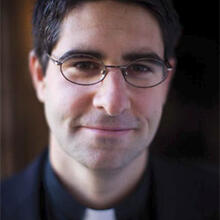Over the past several months, the Catholic Book Club at America has considered recently published works about Jesus. In March, we read Christ Actually by James Carroll. The book inspired a great deal of discussion, much of which debated whether or not Mr. Carroll was a legitimate commentator on the life of Christ and the Catholic appropriation of revelation. By the series of comments and threads of debate, it is quite clear that religious men and women today take rather seriously their understanding of Jesus Christ. Readers are ready to argue passionately for the Christ that they have assented to or discovered or met in prayer and scripture. Their faith centers upon Christ as well as the texts and witness that reveal Christ’s life to the world. But, in the back of their minds—in the back of every thoughtful believer’s mind, in the back of my mind—a question remains: Who was Jesus, actually? Is what is said about him and written about him actually the case? Such a question is essential to faith. Such a question nourishes and enriches faith. Such a question is open to receiving the testimony of the community that is the church as well as the academic community that scours and sifts and digs through every extant artifact of the first century AD in order to understand, more fully, more historically, more faithfully—perhaps, more simply—Jesus Christ.
In his own attempt at getting to the heart of who Jesus was and is, N. T. Wright employs the adverb “simply” in the title of his work, Simply Jesus, which preceded Carroll’s book by three years. If Wright were to recast his title in Carroll’s template, Wright’s book would probably carry the title, Christ Carefully or Christ Subtly. Wright’s account represents a more accessible version of his three volume—now four—academic consideration of Jesus Christ, revelation and the early Christian church. The four volume series entitled “Christian Origins and the Question of God” critically analyzes the Christian and Jewish texts that mark the foundation of the Christian community, the historical context of the first century AD, and how modern scholars think about the texts and the historical data garnered in the last two centuries. Like a good Lonerganian, Wright is concerned with questions, and he reasons that the question—whether or not Jesus was who the texts and early church said he was—may be a far too blunt, unreflective question. Perhaps, it is a question that even reduces Jesus to something far less than who he himself claimed to be. Here is Wright’s assessment of such reductionism:
Many Christians, hearing of someone doing “historical research” on Jesus, begin to worry that what will emerge is a smaller, less significant Jesus than they hoped to find. Plenty of books offer just that: a cut-down-to-size Jesus, Jesus as a great moral teacher or religious leader, a great man but nothing more. Christians now routinely recognize this reductionism and resist it. But I have increasingly come to believe that we should be worried for the quite opposite reason. Jesus – the Jesus we might discover if we really looked!—is larger, more disturbing, more urgent that we—than the church!—had ever imagined. We have successfully managed to hide behind other questions (admittedly important ones) and to avoid the huge, world-shaking challenge of Jesus’s central claim and achievement. It is we, the churches, who have been the real reductionists. We have reduced the kingdom of God to private piety, the victory of the cross to comfort for the conscience, and Easter itself to a happy escapist ending after a sad, dark tale. Piety, conscience, and ultimate happiness are important, but not nearly as important as Jesus himself (4-5).
These are provocative words. Provocative also is Wright’s image of a perfect storm that converges whenever one publicly considers Christ. Winds of skepticism and conservatism are intensified by a scholarly surge in historical analysis. Amidst this swirl of antagonistic worldviews, Wright urges patient, reasonable inquiry into Jesus. Wright’s inquiry proceeds from three questions: What was Jesus’ historical context like? Who was Jesus’ God? and, What did Jesus’ behavior mean? Wright comes to the conclusion that Jesus’ behavior—what he actually did in his cross and resurrection—“rescues human beings in order that through them he may rule his world in the new way he always intended” (216).
Wright presents Jesus scripturally, historically, humanly. Wright’s portrait is not a simplification of the questions surrounding Christ or the answers that flow from such inquiry. Simply Jesus represents an attempt at analyzing how we ask questions about Jesus and what sources we uphold as authoritative. I urge the members of the Catholic Book Club to consider Wright’s book. I assure you that your faith will be heartened and your questions sharpened.
I offer three questions for discussion:
1. Are there any questions regarding the life of Jesus Christ that haunt or puzzle or pester you? What are they?
2. What in Wright’s presentation of Jesus—simply—consoles you or frustrates you or inspires you to further inquiry and deepening of faith?
3. How has you understanding of Jesus Christ evolved during your adult life?








